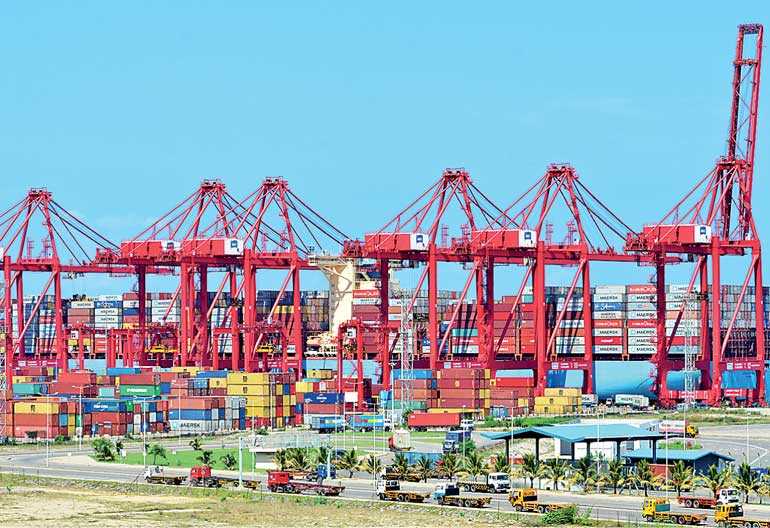Friday Feb 27, 2026
Friday Feb 27, 2026
Monday, 16 November 2020 00:00 - - {{hitsCtrl.values.hits}}

As reported in numerous media sources, a leading Indian consortium is the frontrunner to develop the stalled East Container Terminal (ECT) in the Colombo Port. An agreement was reached during the tenure of the former Government to develop the ECT in collaboration with the Governments of India and Japan. However, the progress of the terminal development was stalled due to various reasons.
The Advocata Institute said it welcomed the decision of the administration to resume the stalled project. The significance of the Colombo Port is driven by its large volumes of transhipment to India, which now accounts for about 70% of the total quantity of shipments, adding that it was is beneficial that both countries continued to strengthen this relationship through trade and economic partnerships.
However, it added it would like to provide input on two main policy areas surrounding this project, in order for policymakers and the public to evaluate the efficacy of the upcoming arrangement.
“The key concern of the Government when entering any kind of public-private partnership such as the container terminal development process should be to ensure that it will produce value for money. The commercial partner selected should be the most capable of producing this outcome. An open tender process would allow for a more efficient allocation of resources by using competitive pricing as a tool to reflect real market sentiments and allowing better utilisation of resources.
“The ECT provides a unique competitive advantage for the operator. The risk in this investment is relatively low, given that the port is already established. The Southport (deepwater port) is well known and has been in existence for six to seven years. The port is also strategically located with only a four-hour deviation from the major east-west shipping route. Additionally, its competitor, the CICT terminal is running close to capacity. Finally, there is a very limited employment multiplier effect that this project can create. The private returns are significantly higher than the cost of capital factoring in-country and project risk. Taken together and based on the publicly available information, the case for tax holidays on this project is weak. Further consideration must also be placed on the precarious fiscal situation that the country is presently in and the need to mobilise more tax revenue.”
The Advocata Institute called upon the Government to strengthen oversight and accountability through an open tender process. “We believe that such a policy direction would be more conducive to reaching the administration’s vision of a more productive and prosperous Sri Lanka.”
Advocata is an independent policy think tank based in Colombo, Sri Lanka.